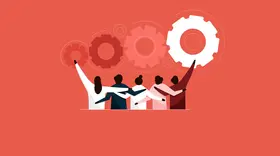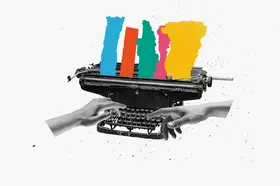Ideas
Made to
Matter
Insights for your work
From MIT Experts

Latest
Entrepreneurship
Artificial Intelligence
Artificial Intelligence
Artificial Intelligence
Future of Work
![]()
Organizational Culture
![]()
Human Resources
![]()
Future of Work



Workforce Intelligence
Strategies to transform skills, roles, and human potential across your organization.
The Latest

Looking ahead at AI and work in 2026
Experts in artificial intelligence from MIT Sloan are keeping an eye on the human-LLM accuracy gap, AI guardrails, and other trends.
Why aren’t AI open models more widely used?
Open-source and open-weight AI models perform well and cost less — but users opt for closed models 80% of the time, according to new research.
How digital business models are evolving in the age of agentic AI
As businesses adopt AI, they need to rethink how they make money. Understanding these four new business models is a place to start.
‘This AI tool helped me choose the right market for my startup’
Learn how the MIT Entrepreneurship JetPack digital adviser guided health tech startup Femmli through a detailed approach to market segmentation.
Scaling AI for results: Strategies from MIT Sloan Management Review
AI really can pay off. But leaders must take a systematic approach, understand how the technology works, and let their team leaders determine how it’s used.
How to navigate the age of agentic AI
A new report from Sloan Management Review and BCG identifies four tensions that organizations must manage when rolling out agentic artificial intelligence.
Generative AI shows effectiveness in aiding weight loss
Generative AI can help people lose weight, but it can’t replace the benefits of having a community of support, research from MIT Sloan shows.
The 10 principles of finance
With technology and policy developments roiling finance, it’s a good time to revisit the fundamentals. Here are 10 core concepts from MIT Sloan Nobel laureate Robert C. Merton and co-authors.
Achieve big value with smaller AI efforts
Organizations see success by starting with smaller AI transformations. Aiming for incremental value builds a foundation for sustainable results.
Choose the human path for AI
To realize the greatest gains from artificial intelligence, we must make the future of work more human, not less.














